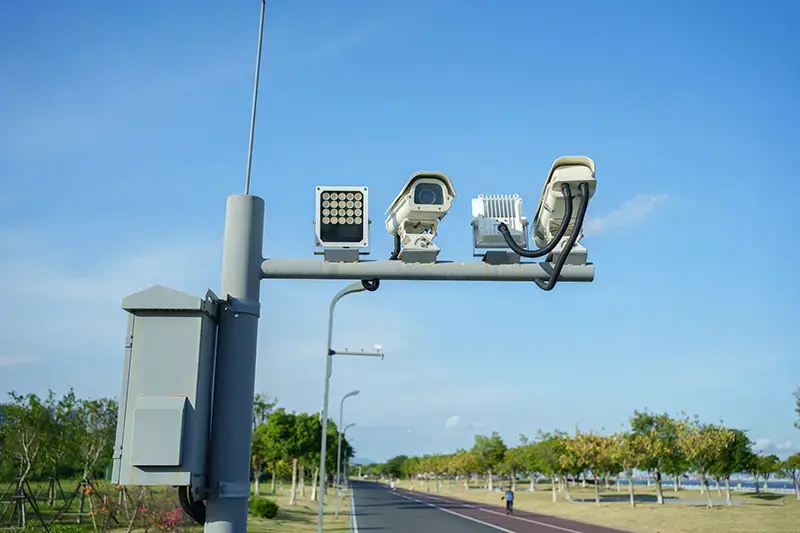High-tech policing are heading for UK roads. What does it mean for your safety and your insurance premiums.
ArtificiaI Intelligence powered cameras are starting to appear on UK roads, and their advanced technological power means that they’re very different from the speed cameras we’re used to. Designed to improve road safety, they target not just speeding, but a wider range of dangerous habits that contribute to accidents.
Using advanced lenses and artificial intelligence, these systems can capture clear images inside vehicles, spotting whether a driver is holding a mobile phone or wearing a seatbelt. They can even identify the make and model of the car.

What can AI speech cameras catch?
Using a combination of high-definition lenses and artificial intelligence, trials show that AI cameras can detect:
- Drivers breaking speed limits
- Use of handheld phones
- Seatbelt non-compliance by drivers and passengers
In a month-long Devon trial, the cameras recorded nearly 1,800 offences, over 1,300 of which involved seatbelts, alongside over 400 cases of mobile phone use whilst driving.
Why are these cameras needed?
UK road safety stats highlight the challenge that’s being addressed. According to the Government, 1,607 people were killed on the roads between July 2023 and June 2024, The “fatal four” (speeding, distraction, no seatbelts, and impaired driving) remain stubbornly high contributors. AI technology directly addresses three of them.
Enforcement is tightening too. with 3.3 million speeding fines issued in 2024, up 14% from just two years earlier, proving that councils and police are really clamping down.
Where they’re being rolled out
Police forces in Durham, Humberside, North Wales, and Staffordshire already use the cameras, while trials continue in Avon and Somerset. Wider adoption is expected as more results are assessed.
How do drivers feel?
Opinions are mixed. Around one in five see AI enforcement as a step too far, but many welcome the extra safety benefits. A third of motorists believe the tech will reduce accidents, and some already admit it’s changed their behaviour, making them more likely to wear a seatbelt or leave the phone alone. Still, over a third would prefer human checks alongside AI.
How can this affect insurance premiums?
Breaking the rules doesn’t just lead to fines; it also puts your insurance premiums at risk. With penalty points staying on your licence for up to four years, insurers take them seriously when working out your costs.
For drivers, the message is clear: avoiding risky behaviour not only keeps you safer but also helps protect your wallet.
Looking forward
AI enforcement is here to stay. Love it or hate it, detection is becoming harder to dodge. The smart move is simple, drive by the rules, keep yourself safe, and avoid the financial sting of penalties and higher premiums.


